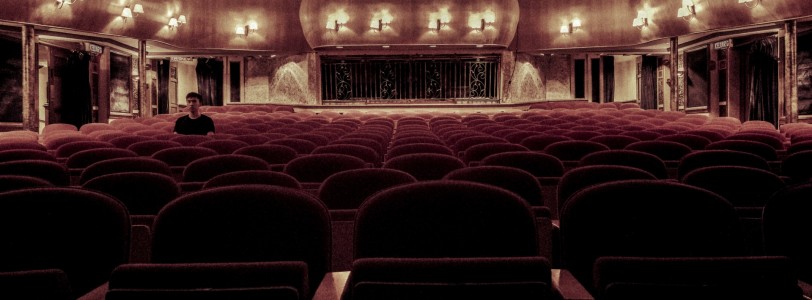Equality is a loose term. Its use is prevalent in all the rights campaign speeches but what does it actually mean? If you are a disabled person, the Equality Act 2010 states that some people(s) or organisations have the duty to make reasonable adjustments. It says, “…changes or adjustments should be made to ensure you can access the following things if you’re disabled: education, employment, housing, goods and services like shops, banks, cinemas, hospitals, council offices, leisure centres…” Is the theatre not just a live-action cinema performance? So why is it that disabled people are still excluded from a rich history of theatrical production?
Disabled people have rights and needs like non-disabled people, but securing accessibility for them is often overlooked. Even this year the development of Manchester’s new £112m Factory arts centre was set back because of the lack of disabled and wheelchair provisions the building offered.
You would be forgiven for thinking that disability provisions would be something that theatres had resolved by now, considering that they’ve been around for hundreds of years. However, in some circumstances it’s their age that makes access difficult to facilitate. Many theatres struggle to offer access because they were built over a century ago, and disability simply wasn’t a consideration back then.
The Ambassador Theatre, on West Street, London is one of those theatres unable to accommodate wheelchair users because of structural inadequacy.
Andrew Mills, general manager for the Ambassador says, “I’m ashamed to say that if you arrive in a wheelchair and are not able to be transferred to one of our seats, the Ambassador cannot accommodate you. It’s a health and safety issue; there needs to be space for access in and out.”
When asked how people felt when faced with this, Mills replied: “I don’t know how often the box office have had to deal with it but I, as general manager, have had to deal with it a few times- the last time was about three months ago. Patrons usually go somewhere else and once you explain why, they can be understanding.”
The issue at the Ambassador is that the staircases are very narrow, and the theatre simply doesn’t have the space available for wheelchair users who aren’t able to transfer to a seat.
The Ambassador also does not have a disabled toilet on site. Mills explained, “The ambassador doesn’t have a disabled toilet, but St Martins Theatre is about 12ft next door and they have a disabled toilet that is available to our patrons.”
It’s frustrating that the original architecture of theatres means that people must be excluded. But, even when theatres are aware that their architecture is not fit for purpose, changing it is often beyond their control.
Theatres are admired and loved in their communities, but this - and their historical standing - means that many are registered as listed buildings. The Bristol Old Vic and The Royal Opera House, for example, are Grade 1 listed buildings, which means they are of the highest public interest. Listed buildings need consent from local authorities to make alterations, such as adjusting staircases or handrails, and must also seek permission to do any work that disrupts decorative plasterwork or panelling. This becomes a major issue for any theatre wanting to make permanent disabled provisions, which in turn, affects their accessibility.
Theatres Trust, champions for theatre restoration, revival, improvement and preservation, said in a recent press release that “more than £550 million is needed over the next five years for capital projects to upgrade and maintain theatres across the UK,” and one reason for that is to improve theatres disabled access. But, in the research conducted, improving disabled provisions is caught up in what seems like a very expensive, long-term theatre maintenance battle.
At the Bristol Old Vic, the only seating areas that aren’t accessed by stairs are in the dress circle, an area commonly used as the ‘access friendly’ space for theatres. At the Theatre Royal Haymarket, disabled patrons are required to use another entrance that opens 15 minutes later than the non-disabled entrance if they wish to access their seat step free. It is useful that such arrangements can be made, but it’s still in a way that requires disabled people to ask for additional support, limiting their independence. We really do have to ask ourselves whether it’s more important to preserve a buildings original design or create a society that is truly all inclusive?
While accessibility issues seem to plague the older, landmark theatres, more modern theatres, or those that aren’t listed, provide more reason to be optimistic. Although still faced with challenges, there is much more flexibility in approaches to accessibility.
Steve Sargeant, theatre manager for the Beck Theatre, expressed how much of a challenge it is for the industry and inherited theatres with inherited business models, as many of them don’t cater for access to everyone. “To some degree [here at the Beck] we are fortunate because we were built in the 70’s and the physical makeup of the building is accommodating to all from the off. From the car park to the café, all public areas are accessible and there is a lot of space. We are constantly investing in are access provisions. At the moment we are upgrading our induction loop system in the box office so if people are hard of hearing we can ensure we can hear them as well as possible.”
The Beck is a smaller theatre located in Hayes, but its provisions are very advanced. They offer tours to those who are sight impaired before they visit for the performance, relaxed performances, ramped emergency exits, handrails installed, automated doors and ramped corridors. There are areas that are heavily stepped, like the upper stools, but the Beck have sufficient wheelchair space in other seating areas that can accommodate disabled patrons without steps and in turn without a need for additional assistance, unless of course needed.
Sargeant went on to say:
“We train our staff on the social model of disability to offer outstanding service to everyone [disabled and non-disabled]. One in five people at working age are recognised disabled and I think it’s embarrassing that they aren’t accommodated [everywhere].”
Sargeant has made a valid point. It is embarrassing that disability was not considered as much during the period that many theatres were built, which is why it is so important that whatever can be done now, is done.
The West End, with its enshrined place in both society and the capital of our country, should have the freedom and resources to make all necessary amendments. The preservation of theatres is somewhat a topic of concern in the industry, and it’s not to be said that there are any immediate solutions to this, but surely a good way to reaffirm theatres place, need and want, would be by reiterating the importance of the theatre to absolutely everyone.
On a positive note, there is much more progress in accessibility for D/deaf patrons or those who may be hard of hearing, and accommodating them seems like something theatres have a grasp on. For example, providing headsets, having separate showings for the hearing impaired and the induction loop system which uses invisible magnetic fields to match sound.
This is a start in the right direction and more and more theatres have such provisions in place but at times this comes at a cost. At the Apollo theatre for example, headsets are provided on a first come first serve basis, and other theatres require a deposit. Although it’s good they’re available, the attitude towards it still needs some work, as it can come across as rather cavalier- “It’s there if you can pay for it.” or “Sorry but you were too late.”
Although a separate issue, there is also the need for better access in theatres for performers who may be disabled. Daniel Bailey, a former employer of the Questors theatre in Ealing, recalls making two makeshift ramps for disabled cast members to have access to the stage. An anecdotal example, for sure, but a demonstration nonetheless that theatres should do better at accommodating disabled people whether on, or off stage.
Where does this all leave disabled patrons who wish to indulge in the magic of the theatre? Although not much of a consolation, sites such as ‘Official London Theatre’ and ‘Society of London Theatre’, have guides and information on all London theatres that do or don’t have D/deaf or disabled access. This helps disabled people eliminate the disappointment of not being accommodated. Organisations like Theatres Trust, who evaluated Manchester’s new culture centre and deemed it inadequate for disabled persons, do a lot of work with theatres to ensure a certain standard. All of these things demonstrate a shift in attitudes towards accessibility, but there is still a long way to go before we can consider making non-accessible theatres a thing of the past.










I had no idea accessibility was such an issue in theatres! I wrongfully assumed they were required by law to be disability friendly. I do understand that it is a struggle for the older theatres to adept, but it should be mandatory for newer theatres, like the Manchester one, to be accessible. Great article to raise awareness!